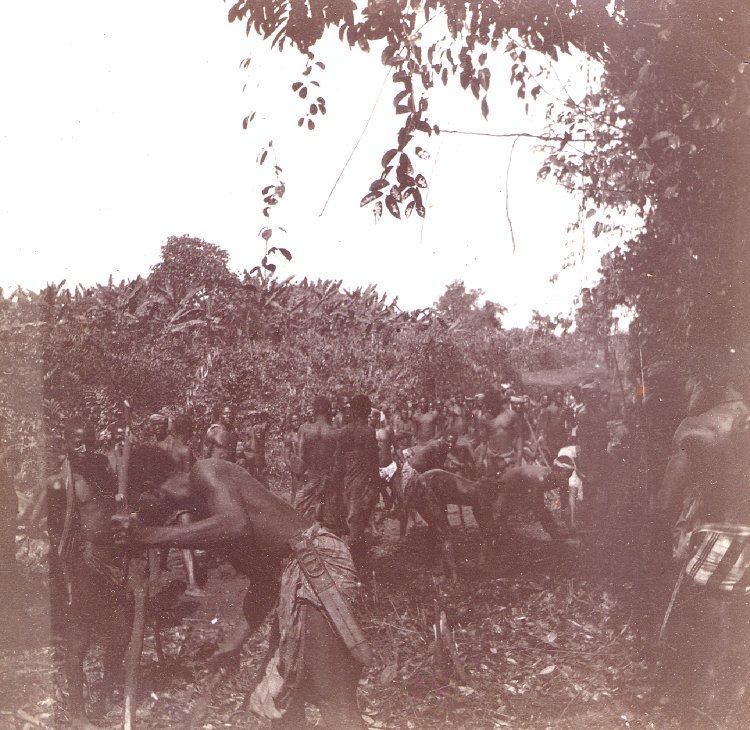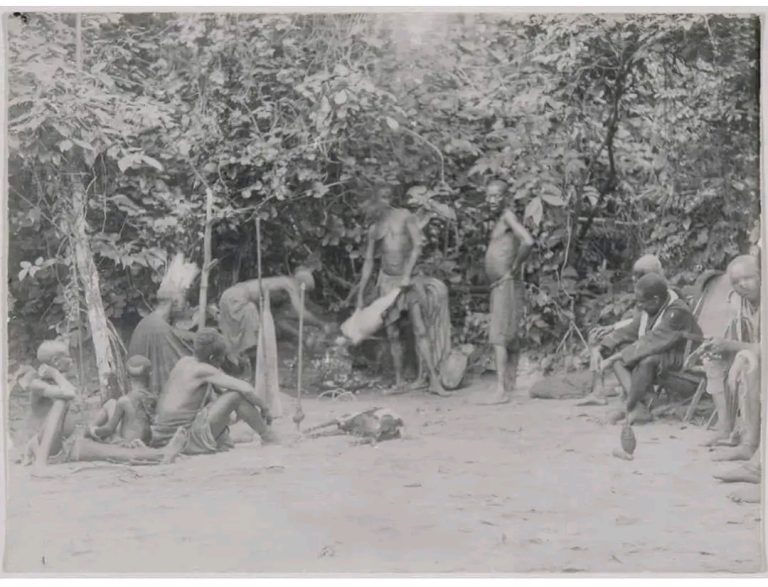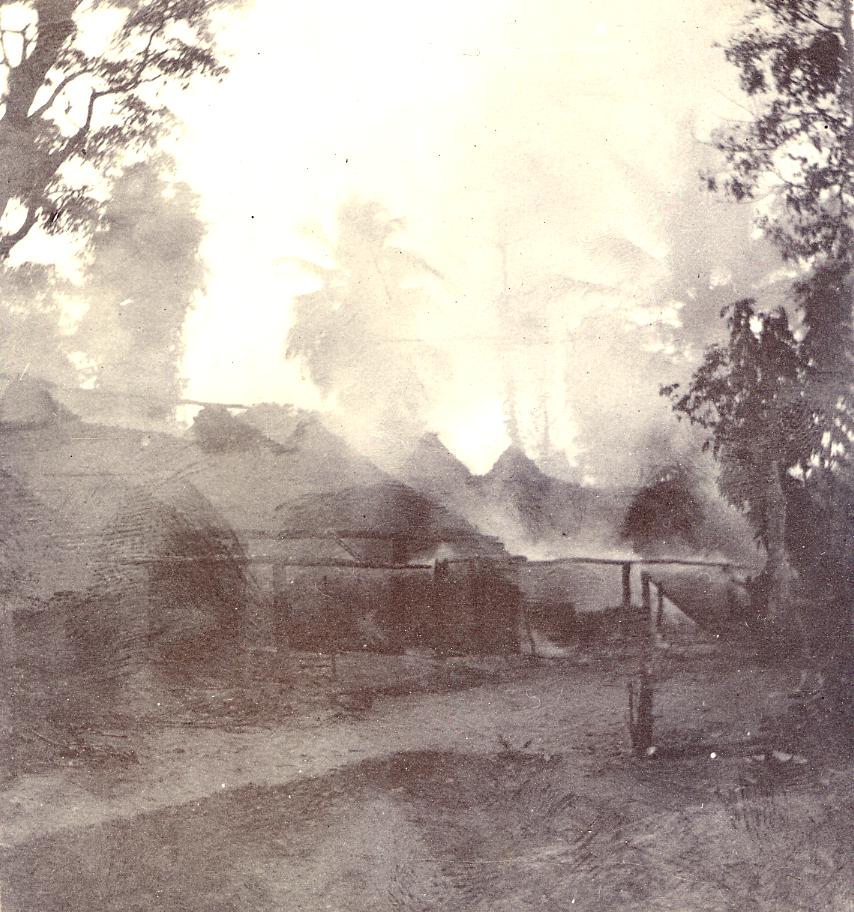
This sepia-toned gelatin silver print captures the burning of Arochukwu after its capture by British forces during the Anglo-Aro War. The image shows clouds of smoke rising from a row of circular, thatched-roof buildings, with trees in the background. The burning of Arochukwu marked a significant event in the British campaign to subdue the Aro Confederacy, leading to the eventual collapse of the Aro’s political and economic power in southeastern Nigeria.
Explore Further
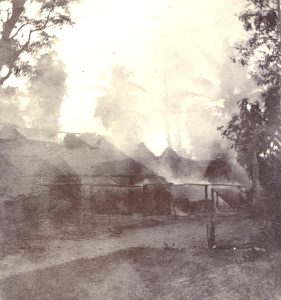 Historical Insights
Historical InsightsThe Anglo-Aro War (1901-1902) was more than just a military conflict; it represented a profound clash of cultures and ideologies. The Aro Confederacy, along with other southeastern Nigerian communities, fiercely resisted British colonial expansion for over two decades. According to Robert D. Jackson’s “The Twenty Years’ War,” this prolonged resistance involved over 300 battles and […]
For a deeper understanding of the Arochukwu’s role in the Anglo-Aro War and the impact of British colonial rule on southeastern Nigeria, consider reading:
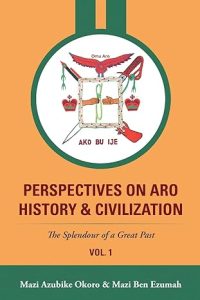 Recommended Books
Recommended BooksAuthor Profile Mazi Azubike Okoro is a prominent figure in the Aro community, with a rich academic background in sociology and human resource management. He holds two master’s degrees and a Doctorate of Management from Argosy University, Chicago, USA. As a native of Amuvi, Arochukwu, he founded Aro News in 1997 to promote research on the culture, […]
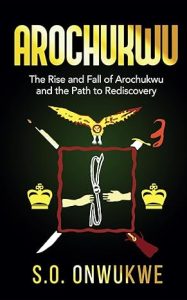 Recommended Books
Recommended BooksBook Details Title: AROCHUKWU: The Rise And Fall of Arochukwu And The Path To RediscoveryAuthor: Samuel Okoro OnwukwePublisher: Zoba’s FacilitiesPublication Date: December 27, 2023Format: PaperbackPages: 118ISBN-10: 9787841852ISBN-13: 978-9787841853Language: English Author Profile Samuel Okoro Onwukwe is an author who delves into the historical narratives of the Aro people, a group that played a pivotal role in […]
These books provide an in-depth look at the socio-economic structures of the Arochukwu Kingdom, the effects of the Anglo-Aro War, and the broader implications of British colonialism in Nigeria.
Discover more from Igbo Archives
Subscribe to get the latest posts sent to your email.


